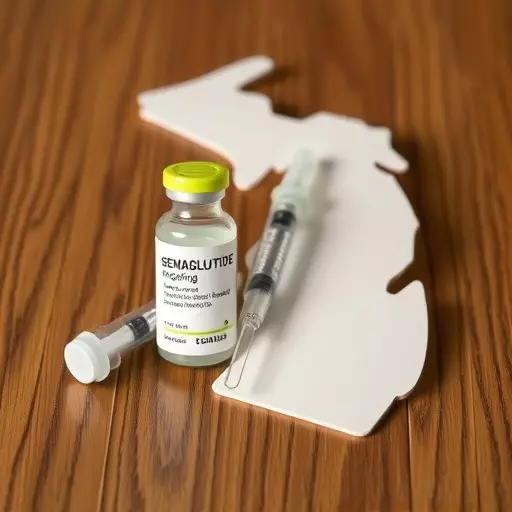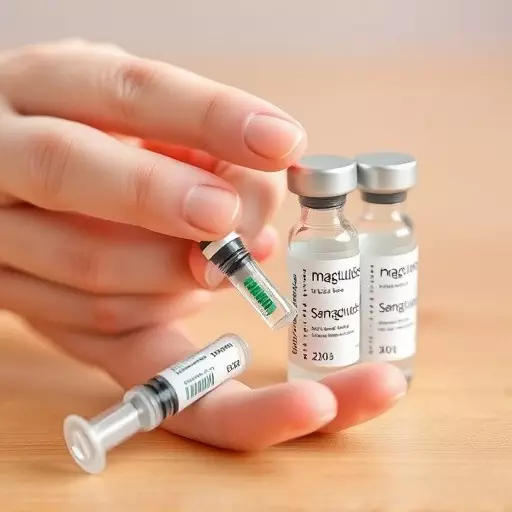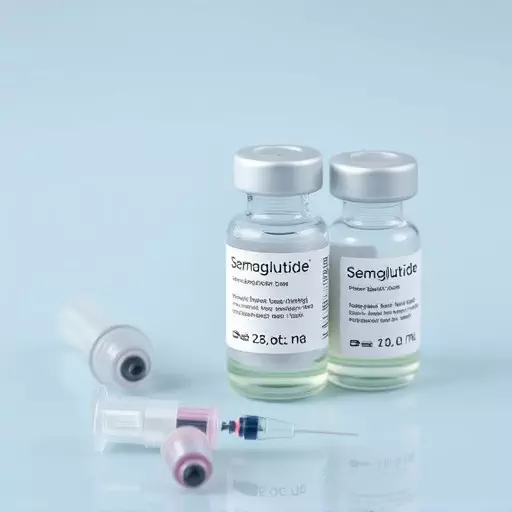The growing demand for eco-friendly semaglutide packaging in South Bend-Mishawaka, IN/MI reflects advancements in injectable therapies for obesity and a shift towards sustainable practices. Local pharmaceutical manufacturers are leveraging innovative materials and technologies to meet these demands, creating more sustainable and patient-centric solutions while contributing to the region's evolving healthcare ecosystem. By embracing green packaging initiatives, South Bend-Mishawaka aligns with global efforts to minimize environmental degradation while ensuring effective therapy through semaglutide and other injectable treatments for obesity.
In South Bend-Mishawaka, IN, Semaglutide, a leading injectable therapy for obesity, has gained significant prevalence. This article delves into the challenges associated with its current packaging methods, which contribute to substantial waste in the region. We explore eco-friendly alternatives, examining successful initiatives within the pharmaceutical industry and their impact on sustainability. Furthermore, we discuss advances in injectable therapies, highlighting innovations that promise to revolutionize Semaglutide’s packaging, reduce waste, and foster a greener future for South Bend-Mishawaka’s healthcare landscape.
- Understanding Semaglutide and Its Packaging Challenges in South Bend-Mishawaka, IN
- – A brief overview of Semaglutide and its prevalence in the region
- – Current packaging methods and associated waste issues
Understanding Semaglutide and Its Packaging Challenges in South Bend-Mishawaka, IN

Semaglutide, a groundbreaking medication used in the management of obesity and type 2 diabetes, has significantly transformed healthcare practices. In South Bend-Mishawaka, IN, understanding the unique challenges associated with its packaging is essential. The city’s pharmaceutical manufacturing sector has witnessed a surge in demand for eco-friendly semaglutide packaging initiatives, driven by advances in injectable therapies for obesity and a growing awareness of sustainable practices.
The specific requirements for semaglutide packaging, such as maintaining stability, ensuring precise dosages, and adhering to stringent regulatory standards, present unique hurdles. Manufacturers in the region are responding with innovative solutions, incorporating advanced materials and technologies to create more sustainable and effective packaging. These efforts not only contribute to a greener environment but also enhance patient convenience and safety, reflecting the evolving trends in pharmaceutical production within South Bend-Mishawaka’s healthcare ecosystem.
– A brief overview of Semaglutide and its prevalence in the region

Semaglutide, a groundbreaking medication designed to aid in weight management, has gained significant popularity in the South Bend-Mishawaka area of Indiana, MI. As one of the leading treatments for obesity, its increasing demand highlights the need for sustainable practices within the healthcare industry, especially regarding packaging. The region’s growing awareness of eco-friendly initiatives aligns perfectly with the global shift towards more environmentally conscious solutions, particularly in the pharmaceutical sector.
With advances in injectable therapies for obesity, such as semaglutide, coming to the forefront, there is a corresponding responsibility to minimize waste associated with their delivery. This is where innovative packaging strategies play a vital role. By adopting eco-friendly semaglutide packaging initiatives, manufacturers and distributors can contribute to a greener future while ensuring the medication remains accessible and effective for those in need.
– Current packaging methods and associated waste issues

In the medical industry, especially with advancements in injectable therapies for obesity like Semaglutide, packaging plays a significant role in both product efficacy and environmental impact. Currently, Semaglutide in South Bend-Mishawaka, IN-MI, is packaged using traditional methods that often involve non-biodegradable materials, leading to substantial waste issues. These conventional packages, while protective, contribute to the growing problem of plastic pollution, as many are not easily recyclable or biodegradable.
Eco-friendly Semaglutide packaging initiatives are gaining traction as a response to these challenges. Innovators and manufacturers are exploring sustainable alternatives, such as biodegradable polymers and minimalistic designs that reduce material usage. These efforts align with global trends towards greener practices, ensuring that medical advancements like Semaglutide therapies do not come at the cost of environmental degradation.
